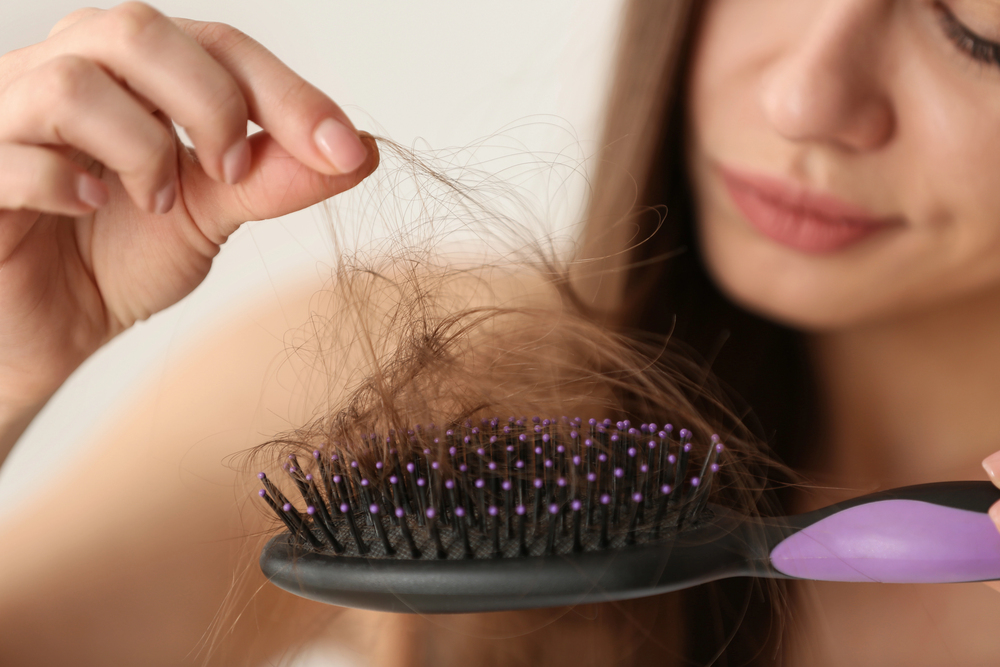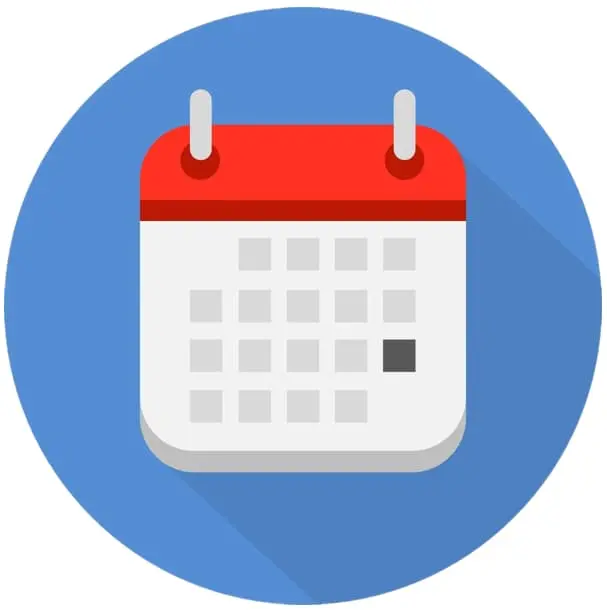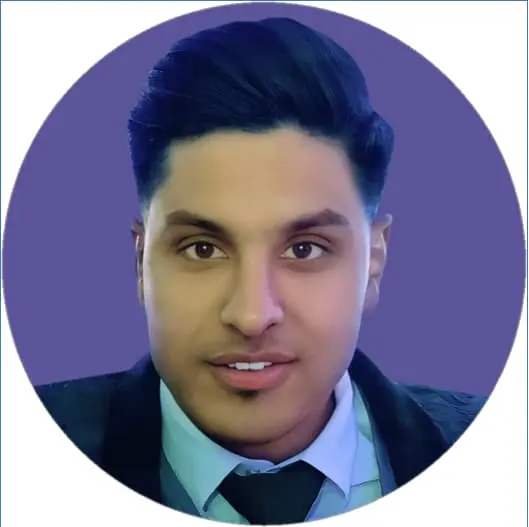What Is the Best Hair Loss Treatment?

Content by

Last Updated
Start a Consultation Today
Science means that hair loss can be optional...
No fancy packaging. No unwanted subscriptions. Delivered discreetly.
On average, we lose between 50 and 100 hairs a day. [1] When hair starts to shed more than usual, it is natural to feel concerned. Hair loss or alopecia is very common, affecting millions of men and women around the world. Not only does hair loss affect a person’s body image but also their self-esteem, social life and well-being.
While many struggle with this issue, the quest for the best and most effective hair loss treatment can be challenging. From over-the-counter scalp treatments to prescription medications, there are many options to help improve hair growth and thickness.
In this comprehensive guide, we look at the main causes of hair loss, provide an overview of the best hair loss treatments available at Chemist Click and help you decide which hair loss treatment you should take.
Table of Contents
- What Causes Hair Loss?
- Best Treatments for Hair Loss
- Finasteride 1mg
- Minoxidil Topical Spray
- Propecia Tablets
- Regaine Extra Strength Foam
- An Overview of Hair Loss Treatments
- Which Hair Loss Treatment Should I Take?
What Causes Hair Loss?
Hair loss can be permanent or temporary. Many believe it is inherited by one side of the family and is a normal part of ageing. However, ageing and genetics are not the only causes of hair loss. Let’s have a look at the main causes of hair loss:
Ageing
As we age, our rate of hair growth slows down. Hair follicles stop growing new hair in their place, leading to noticeable patches of hair loss. In addition, hair shafts can start to shrink due to age, giving the appearance of thinner-looking hair. This can occur at any age, even in your early 20s. Research says that more than half of men over 50 have some degree of hair loss. [2]
Genetics
One of the most common types of hair loss is androgenetic alopecia (male or female pattern baldness). It is a genetic condition that causes levels of a hormone called dihydrotestosterone (DHT) to increase. DHT is a derivative of testosterone. High levels of DHT in the body are responsible for shrinking hair follicles and stopping hair growth, leading to visible hair loss.
Nutrient Deficiencies
Good nutrition is essential for hair health. Some vitamin and mineral deficiencies are linked to hair loss. A lack of iron leads to a condition called anaemia. Hair loss is an uncommon side effect of anaemia, as less oxygen reaches the scalp and hair follicles. Furthermore, studies have shown that vitamin D deficiency plays a role in hair loss. [3]
Stress
High levels of stress can also trigger hair loss. Significant stress pushes large numbers of hair follicles into a resting phase, followed by excessive hair shedding, known as telogen effluvium. This type of hair loss is usually temporary and can be reversed by managing stress.
Hormone Changes
Pregnancy, menopause and thyroid problems often cause hormone changes which contribute to hair loss. For instance, many women experience excessive hair shedding and thinning after pregnancy. This is known as postpartum hair loss. Similar to stress-induced hair loss, it is temporary. Postpartum hair loss often restores naturally up to 6 months after giving birth. Hormonal imbalances related to thyroid issues can also cause hair to thin or fall out.
IIness
Various illnesses cause hair fall out. For instance, alopecia areata is an autoimmune disorder in which the immune system attacks hair follicles, causing hair to fall out in small patches. Alopecia areata can lead to a few patches of baldness or complete hair loss.
Medications
Hair loss can also be a side effect of certain medicines. Chemotherapy, used to treat cancer, is well-known for causing hair loss. The drugs used in chemotherapy target rapidly dividing cells, including those in hair follicles, which leads to hair loss all over the body.
Hairstyles and Treatments
Constant pulling of the hair can cause traction alopecia. It is more common in those who continually put their hair in tight hairstyles. In addition, excessive amounts of heat and chemical treatments such as bleach can damage the hair follicles, leading to breakage, thinning and hair loss in severe cases.
The Best Treatments for Hair Loss
So, how is hair loss treated? Medications and scalp solutions are the most common types of hair loss treatments. At Chemist Click, we offer a wide range of hair loss treatments to treat male pattern baldness including:
Finasteride 1mg
Finasteride is a type of 5-alpha reductase inhibitor, also known as DHT blockers. This medication is intended to treat male pattern baldness. Finasteride works by blocking the body’s production of DHT, reversing hair loss. Finasteride 1mg comes in tablet form and is only available with a prescription. One tablet of Finasteride 1mg is to be taken daily around the same time. It can take at least 3 months of consistent use to see visible results.
Finasteride 1mg Customer Reviews - 4.8 / 5
“Awesome product. No side effects. Everyone worries about the side effects but in my experience, there aren’t any. Everything is working how it should be lol. Do your research and try it. My hair feels thicker already and less fallout. Still early days but I know this is a long term medication and I look forward to future results.”
“After 2 years of taking Finasteride a lot of people have commented how well my hair is looking now, I used to shave it all off due to thinning but now I have longer hair, and while it is still thin in some areas it's a lot better than what it used to look like.”
“I am happy so far with this product and with the service that I have received. Also, the price was really good and far lower than anywhere else!”
See more reviews about Finasteride 1mg here.
Minoxidil Topical Spray
Minoxidil Topical Spray is a solution used for mild and moderate cases of male pattern baldness. It contains Minoxidil 6% as the active ingredient, promoting blood flow and encouraging hair growth. Minoxidil is relatively safe and well-tolerated by most users. Typically, 1ml (6 sprays) of Minoxidil Topical Spray is applied and massaged into a dry scalp twice daily. Results are visible within 3 to 6 months of consistent use.
See reviews of Minoxidil Topical Spray here.
Propecia Tablets - 5 / 5
Propecia is the branded version of Finasteride 1mg, used to treat male pattern baldness. It comes in tablet form with Finasteride 1mg as the active ingredient. Propecia also works by blocking the DHT hormone, slowing down hair loss. One Propecia tablet must be taken daily, ideally at the same time. It can take 3 to 6 months of consistent use to see hair improvements.
Propecia Tablets Customer Reviews
“As described”
“Fast delivery”
See more reviews of Propecia Tablets here.
Regaine Extra Strength Foam - 5 / 5
Regaine Extra Strength Foam is the branded version of Minoxidil Topical Spray. It contains the active ingredient, Minoxidil 50mg and comes in a 5% foam solution to treat male pattern baldness. It works by increasing blood flow to the hair follicles and prolonging the growth phase of the hair cycle. One capful of Regaine Extra Strength Foam needs to be applied and massaged into the affected scalp area twice daily. Leave at least 12 hours between doses. It takes 3 to 6 months of proper use before results are noticeable, and continued use is often necessary to maintain any hair growth.
See reviews of Regaine Extra Strength Foam here.
An Overview of Hair Loss Treatments
In the table below, we have compared the different hair loss treatments available at Chemist Click.
| Finasteride 1mg | Minoxidil Topical Spray | Propecia Tablets | Regaine Extra Strength Foam | |
| Price at Chemist Click | From £13.89 | From £21.24 | From £49.99 | From £49.99 |
| Active Ingredient | Finasteride 1mg | Minoxidil 6% | Finasteride 1mg | Minoxidil 5% |
| Form | Tablet | Spray | Tablet | Foam |
| Mechanism of Action | Blocks DHT, the hormone which shrinks hair follicles | Promotes blood flow to hair follicles resulting in growth | Blocks DHT, the hormone which shrinks hair follicles | Encourages supply of blood and nutrients to hair follicles, promoting hair growth |
| Dosage | One tablet daily | 1ml (6 sprays) twice daily | One tablet daily | One capful twice daily every 12 hours |
| Side Effects | Sexual dysfunction, depression, breast enlargement, pain or tenderness, a lump on the breast, nipple discharge, finding it hard to urinate, testicular pain | Irritation, itchiness, burning, temporary increase in hair loss, change in hair texture or colour | Loss of sexual desire, erectile dysfunction, tenderness, swelling or pain in the breast, testicular pain, poor semen quality | Irriation, Itchiness, dermatitis, unwanted non-scalp hair growth |
| Prescription Required? | Yes | Yes | Yes | No |
| Unique Selling Points |
Effective in 90% of men Clinically proven to stimulate hair growth Available in boxes of 28, 56, 84 or 168 tablets |
High-strength minoxidil formulated in a UK NHS-approved lab. Stronger than over the counter formulations. |
Effective in 90% of users Available in boxes of 28, 56, 84 or 168 tablets |
Works best for men who have hair loss or thinning at the top of their head Effective in up to 80% of users |
Which Hair Loss Treatment Should I Take?
Research shows that Finasteride 1mg or 5% topical Minoxidil is effective in treating mild to moderate male pattern baldness. A 12-month study found that Finasteride 1mg was slightly more effective than 5% topical Minoxidil and a combination of both showed the best efficacy. [4]
It’s important to determine the cause of your hair loss before trying a new medication, as not every treatment may be suitable.
For instance, Finasteride and Propecia tablets are used to treat male pattern baldness and are not intended for female use or other types of hair loss.
If you are trying to conceive, medications such as Finasteride and Dutasteride should not be taken either as both drugs may affect your baby.
If you have a pre-existing liver problem caution is also advised. Finasteride and Dutasteride are metabolised by the liver, and impaired liver function may lead to an accumulation of these medications, increasing the likelihood of serious adverse reactions.
Similarly, for those with pre-existing heart problems, Minoxidil is not advised as it can affect the heart.
At Chemist Click, we invite our customers to complete a free online consultation before purchasing hair loss treatments. This allows our qualified pharmacists to approve the best hair loss treatment according to your circumstances and needs.
Sources
- NHS (2023). Hair Loss. Retrieved 24th October 2024, from: https://www.nhs.uk/conditions/hair-loss/
- Circle Health Group. (2023). At What Age Will I Start Losing My Hair? Retrieved 24th October 2024, from: https://www.circlehealthgroup.co.uk/health-matters/mens-health/what-age-will-i-start-losing-my-hair
- Saini K, Mysore V. (2021). Role of Vitamin D in Hair Loss: A Short Review. Retrieved 24th October 2024, from: https://pubmed.ncbi.nlm.nih.gov/34553483/
- Ruiming Hu, Feng Xu, Youyu Sheng, Sisi Qi, Yumei Han, Ying Miao, Wenlong Rui, Qinping Yang. (2015). Combined Treatment With Oral Finasteride and Topical Minoxidil in Male Androgenetic Alopecia: A Randomized and Comparative Study in Chinese Patients. Retrieved 24th October 2024, from: https://onlinelibrary.wiley.com/doi/abs/10.1111/dth.12246
Whilst all of our content is written and reviewed by healthcare professionals, it is not intended to be substituted for or used as medical advice. If you have any questions or concerns about your health, please speak to your doctor.
